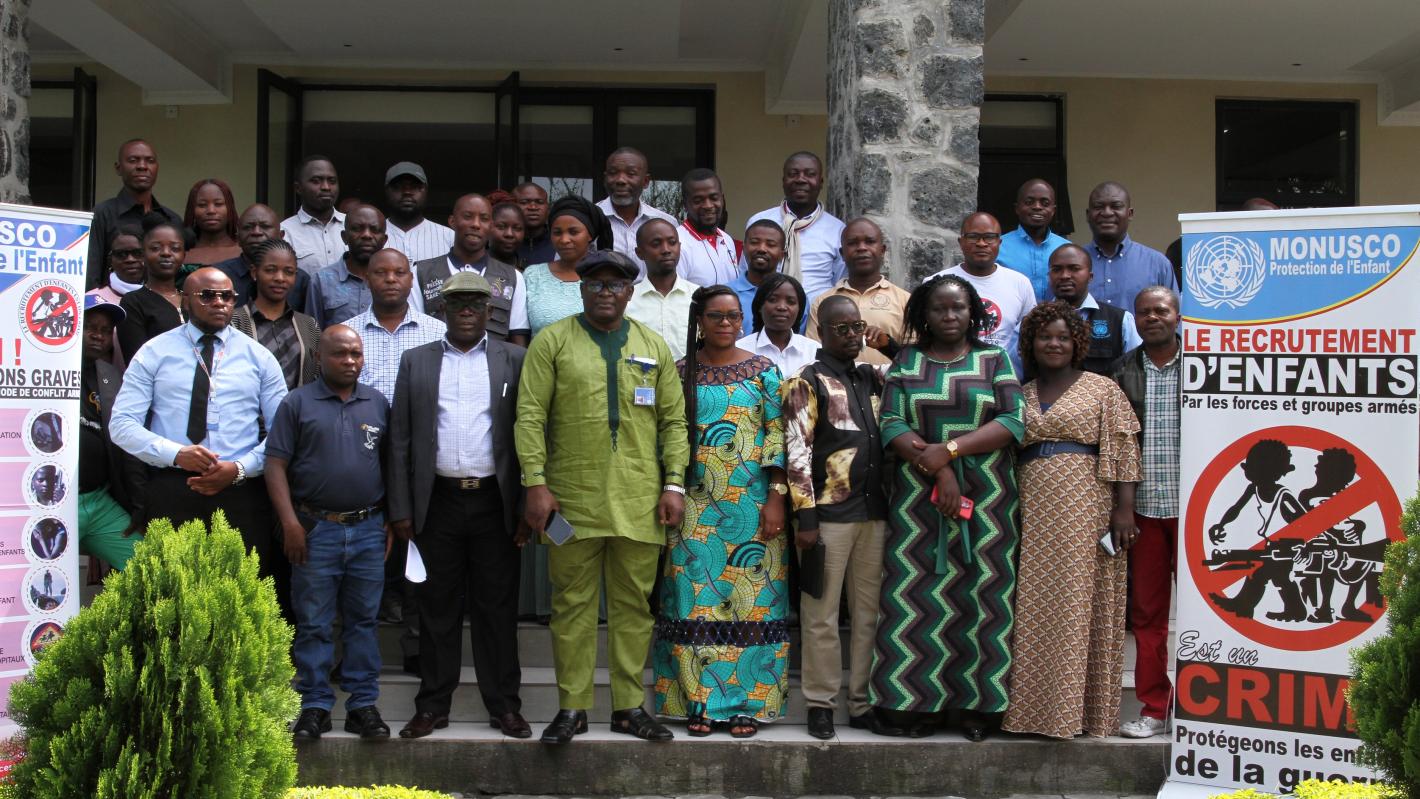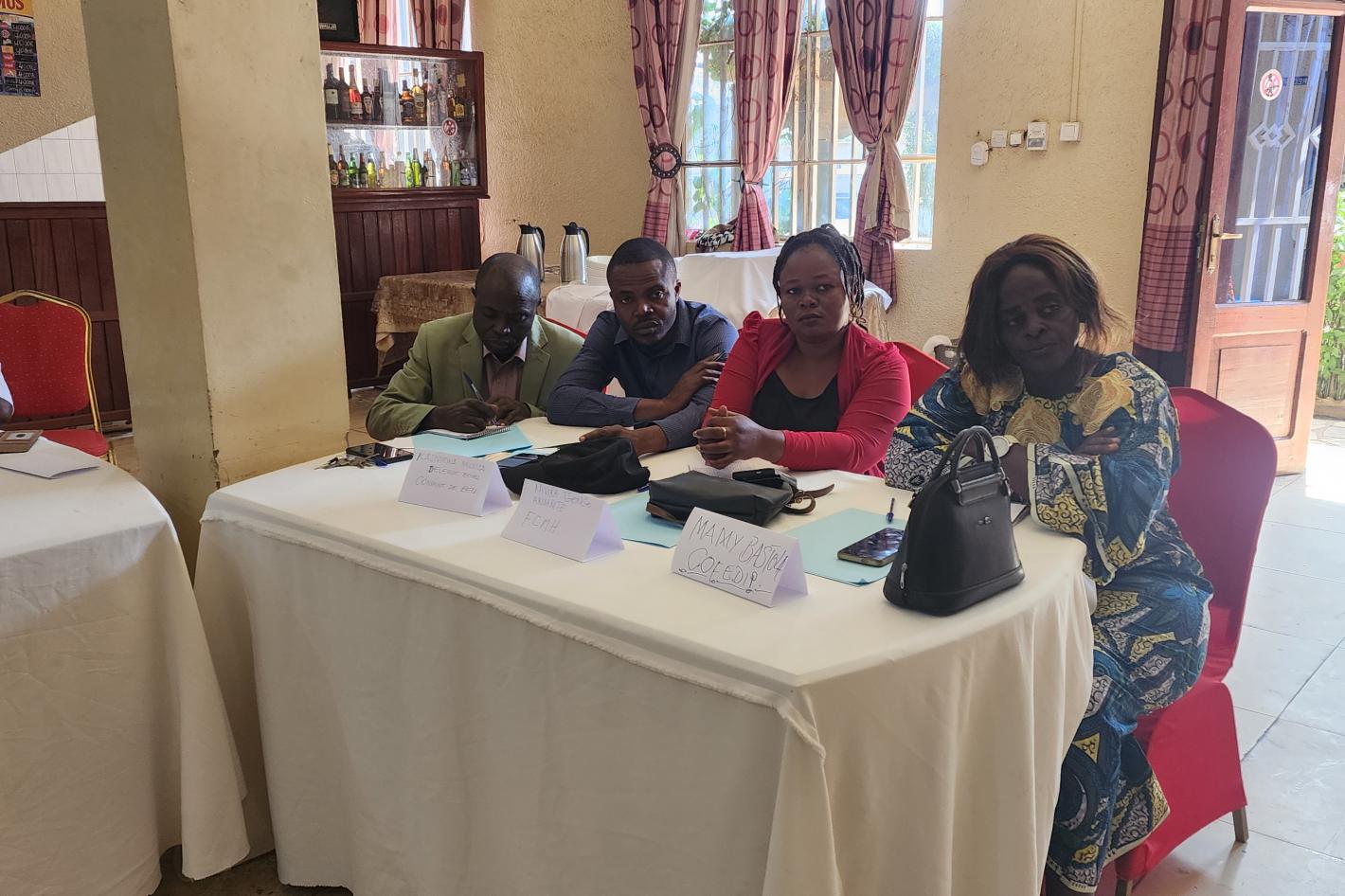While eastern DRC is facing an upsurge of child rights abuses, MONUSCO's Child Protection Section organised a capacity building workshop for protection focal points, whistleblowers and members of the Joint Technical Working Group on Protection and Armed Conflict (JTWG) on 25 and 26 April 2023 on monitoring and reporting mechanisms for grave child rights violations. This was done with the aim of curbing the recruitment of children by armed groups.
"The priority of MONUSCO's priorities is the protection of civilians," said Julius Fondong, head of the Political Affairs section in Goma during the two-day workshop, reminding participants of the UN mission's expectations at the end of the training session.
In the current context of socio-security instability that the province of North Kivu has been experiencing for some time, it is vitally important to combine efforts in order to protect children from the possible abuses they may suffer at the hands of armed groups, and sometimes even at the hands of the regular army. To this end, Théo Matafa, FARDC lieutenant-colonel and provincial coordinator of the Joint Technical Working Group (JTWG) recalled: "Each recruitment within the FARDC takes place in collaboration with UNICEF, the Child Protection Section and the PDDRCS.” He said that the involvement of the FARDC in the fight against child recruitment into the army and armed groups is indeed real.
Six serious violations
There are six serious violations of children's rights during armed conflict: killing and maiming of children, recruitment and use of children, rape and sexual violence against children, abduction of children, attacks on schools and hospitals, and denial of humanitarian assistance to children. These violations were reported to the participants. "For MONUSCO, protection involves three different main actors: the aggressor, the protector and the victim," said Justin Vuguvugu, one of the facilitators of the workshop and a member of MONUSCO's Child Protection Section.
"The mandate of the Child Protection Section is to collect, document and report information on grave violations of children's rights; advocacy and capacity building of state actors, civil society and children to prevent violations; fight against impunity, judicial follow-up and support to the prosecution of perpetrators," he added.
The union of actors strengthens the links
"Several MONUSCO sections are contributing to the building of strategies to contain possible cases of sexual abuse," said Olivier Akili, representative of the Conduct and Discipline section. According to him, "these strategies are based on three pillars, namely prevention with internal and external training, management of the database and assistance to victims.” He continued: "For the Conduct and Discipline section, attention is focused on sexual abuse and exploitation and particular follow-up is ensured throughout any trial, including in the country of the perpetrator.”

Concerning the protection of victims and witnesses, the difference and the relationship between violation and abuse of human rights were recalled. "There is a violation of human rights when the perpetrator is vested with public power, whereas we speak of abuse when it is caused by a non-state actor," said Thimothée Twiriyimana, an expert in the MONUSCO human rights section.
Several children separated from armed groups
To do better, the focal point for child protection within the 34th military region, Lieutenant-Colonel Matthieu Shagali of the FARDC, stressed that "protection is a synergy. The action plan that applies during armed conflicts requires four strategies: separation, protection, prevention, response and the fight against impunity. The involvement of the Congolese government has made it possible to remove the FARDC from the blacklist of armies that recruit and abuse child soldiers," he confirmed.
Before concluding, MONUSCO's gender section listed some of the constraints that restrict integration, which is a prerequisite for development: "Integration is a prerequisite for development. We cannot develop our society without the participation of women," stressed Achille Murhabazi of the Gender Section. "However, all must be given the same opportunities and benefits so that inequality does not prevail," he added.
According to statistics, since 2018, joint efforts and strategies have produced encouraging results: "315 children, including 56 girls, separated from armed groups. 739 children separated and handed over to UNICEF and local partner organisations, including CAJED (Concert d'Actions pour Jeunes et Enfants Défavorisés)," concluded Justin Vuguvugu.






